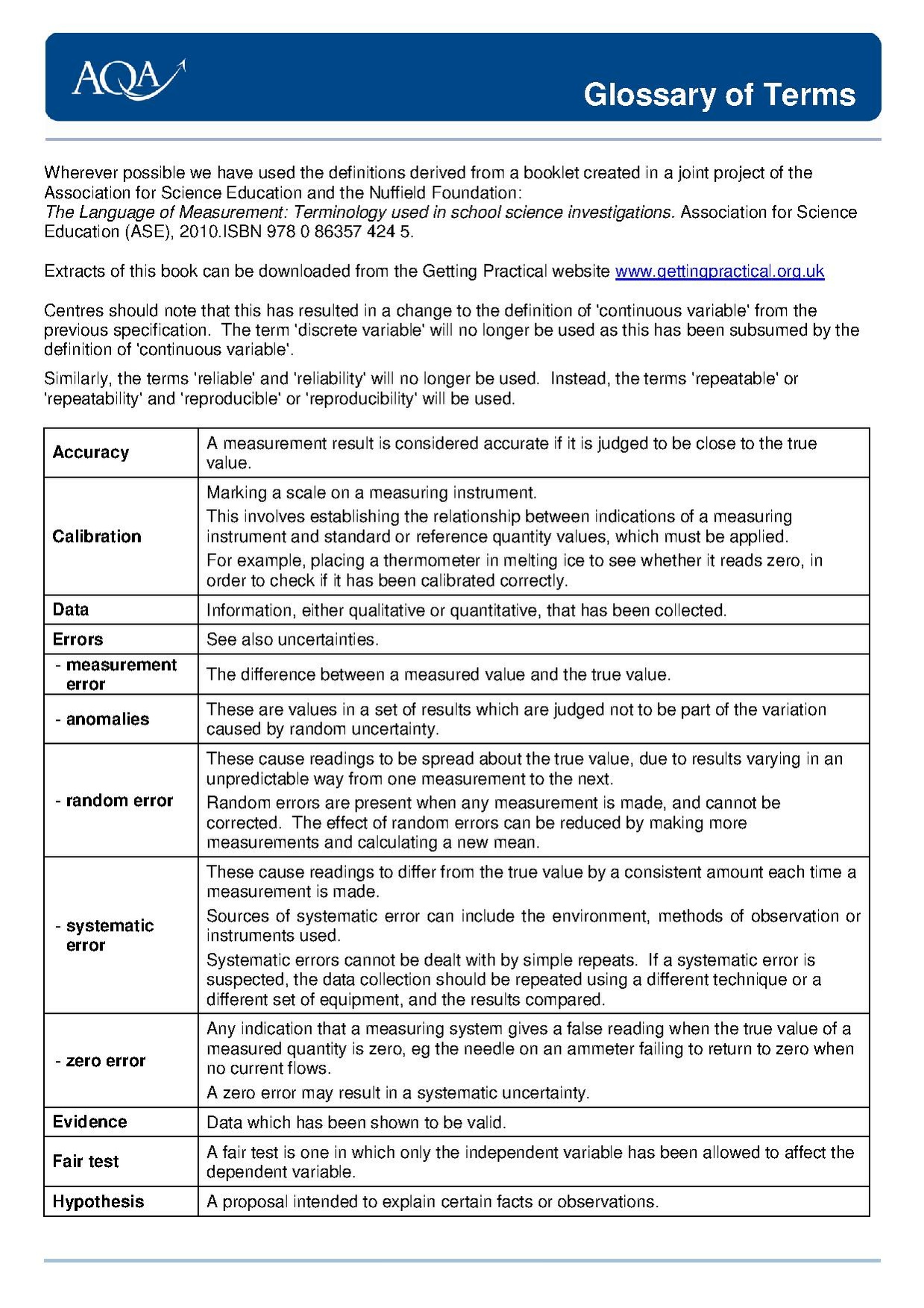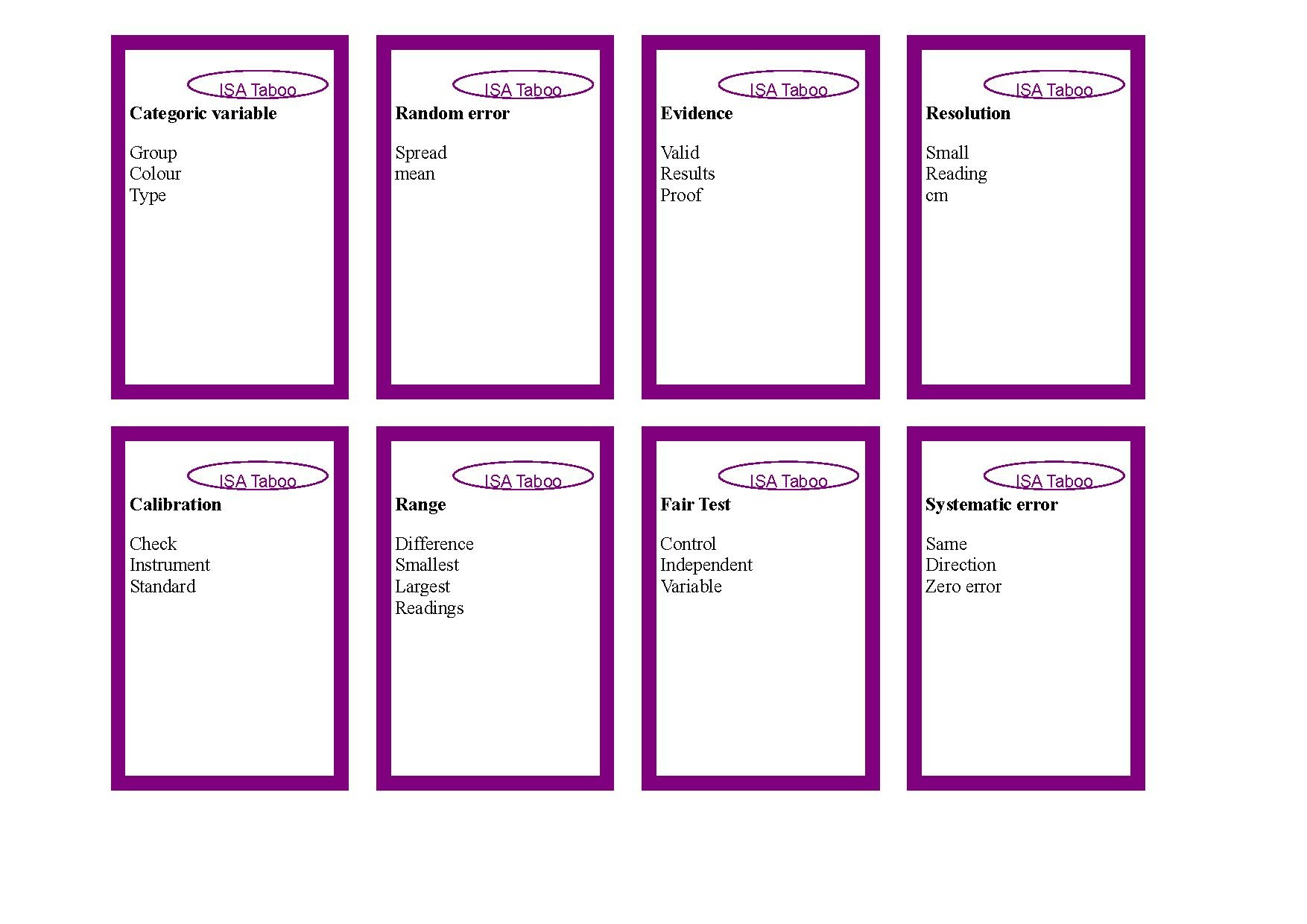Investigation Definitions/Lesson Document
What this resource offers the teacher and the learner
For the learner:
- exposure to the scientific terms used in scientific investigations and in ISA exams
- activities to become familiar with scientific terminology
- opportunity to use scientific terminology before the GCSE ISA exams
For the teacher:
- a fun way to cover scientific terminology (a topic that is not as exiting as most science topics)
- preparation of students for their GCSE ISA exam
How to use in this resource
Most of the lesson is based around students working in pairs or groups. Here is an example lesson plan:
- 5 minutes - student based starter – anagrams of a few terms File:Anagrams.ppt.
- 20 minutes - activity to familiarise with some of the terms – students have to find their pair (one student has a card with a term, the other with the description) File:Terms and definitions cards activity.ppt.
- Assessment by students – using the AQA Glossary of terms page
 .
. - 10 minutes – teacher introduces some of the pairs and their terms to the class, reinforcing understanding by examples and graphs drawn on the board.
- 15 minutes – student group work - play Taboo with cards containing most of the terms
 .
. - 10 minutes – plenary – crossword of the terms and free writing activity for the more advanced students File:Terms crossword.pdf, solutions to crossword puzzle.
Taboo is a word guessing party game published by Hasbro in 1989.] The objective of the game is for a player to have his/her partner(s) guess the word on his/her card without using the word itself or any additional words listed on the card. For practice at playing the game before the introduction of the scientific words Taboo cards, random cards can be retrieved online here: [Taboo].
How this resource support students’ learning
This is one of two lessons preparing students for the ISA GCSE exam. It covers a ‘dry’ topic – scientific terms. Students would have learned some or most of the terms in the regular science lessons; this lesson gathers previous knowledge and adds new terms.
The pairing activity supports collaborative learning. The taboo card game supports group consolidation learning. The plenary offers challenge and hands-on experience of how to use the terms.
A few terms are complex for students to understand. Good use of the AQA Glossary of terms pages can move the lesson (or a few struggling students) on. More able students can finish the task earlier – they can assist their colleagues or use the spare time to write free text using the terms. Comic writing can ease their use.
Care must be taken when discussing the terms continuous and categoric variables. Bearing in mind that continuous variables are quantitative whilst categoric variables are qualitative, pupils may initially choose to think of shoe size as a discrete/quantitative variable before thinking about it in the following terms - Shoe size is best defined as a categoric variable by considering the 'numerical value' i.e. size 6 etc as a 'label' rather than a meaningful measurement.
Also, the word hypothesis can be defined as a 'best guess' or proposal, intended to explain facts or observations available, prior to doing an investigation. This has been shortened for ease of use on the documents that accompany this resource to 'explanation of facts or observations'. Care should be taken to ensure that students are aware of the full meaning of the word hypothesis as there is the potential to confuse a simplified definition with that for the definition of the word 'conclusion'.
